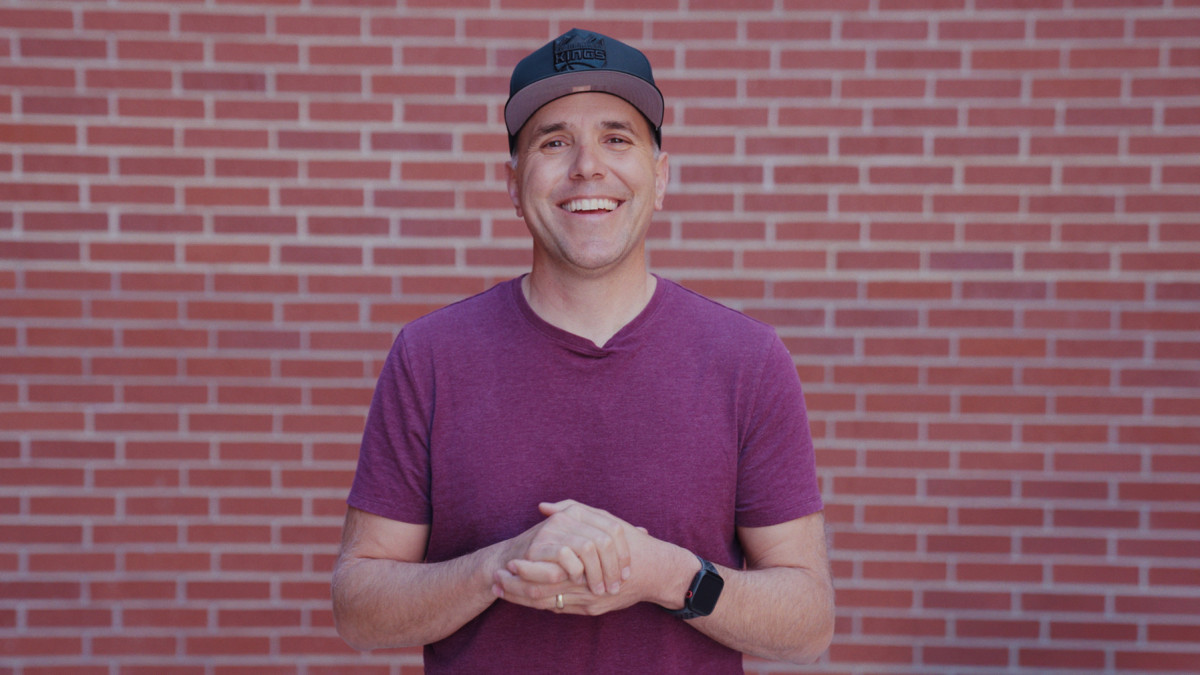
Matt Moore: God Transformed My Life Through Discipleship
The superintendent of the Western District shares how God used discipleship to lead him to be a pastor and church planter.
I grew up in a solid Christian household. My parents faithfully prayed for me. Although I believe I was a Christian, I went off to college seeking to major in a career that would make me a lot of money. In the first few years of college, God began to direct my affections more toward Him. I began leading Bible studies in the freshman dorms. Investing in people was more fulfilling than my academic ambitions.
At the end of my junior year, God led me to start a college ministry at a local Baptist church. My inexperience in ministry forced me to depend upon God, but I was not equipped in the Word. One evening after the college service, a man named John introduced himself and said, “I don't know if you know this, but when you open the Word, you don't know what you're talking about.” I was obviously surprised by his boldness, but I knew he was right.
Soon after, I asked John to begin discipling me. He devoted Monday nights to me—two to three hours in the Word, walking verse by verse through different books of the Bible. He would often ask, “Matt, do you understand what I am teaching?”
It was his goal to not just disciple me, but equip me to disciple others. This intentional discipleship changed my life.
“Yeah, yeah, I think I get it,” I'd say.
He'd then further inquire, “But can you teach it to others?”
“No, not yet.”
“Then you don't get it yet. Let's go back through it.”
John would then walk me back through the passage. It was his goal to not just disciple me, but equip me to disciple others. This intentional discipleship changed my life. I knew I liked mentoring people, but John gave me the content—namely the Word of God—that made my investment eternally impactful.
After college, God began to further develop His call on my life. I began seminary and started working on staff at a non-denominational church in Southern California. My wife and I took the Perspectives on World Missions course. God gave us eyes to see His heart for all people. We spent the next few years asking God where He may want to send us in the world.
During this time, I met a pastor who was planting a church in a working-class ethnic neighborhood in Los Angeles. We knew God had a heart for the nations, but we began to see that the nations were in our own backyard. Our call to ministry was being further clarified; He was calling us to start a multi-ethnic and multi-class church (Eph 2:11-22, Jas 2:1-9).
A few years later, God led our family to South Los Angeles to plant a diverse church in an under-resourced neighborhood. I went in with a passion and plan to make an impact, but God had other intentions. He needed to break me and rework me in order to use me. I wanted to use my gifts and strengths in this neighborhood. Instead, He wanted to show me His grace in working through my weakness (2 Cor. 12:9-10). I wanted to reap; God planned for me to sow. I wanted to see lives changed; He wanted me to prioritize loving people. I wanted to see fruitfulness; He was teaching me to simply walk faithfully with Him.
I love having my feet in both worlds, getting to support pastors while also shepherding a local church. Pastoring keeps me empathetically connected to the pastors I walk with.
Many aspects of ministry became overwhelming. I found myself questioning my calling to ministry. I entered a season of depression where I even questioned God’s goodness. After about three years, we decided to move out of the neighborhood to recover. I felt like a failure and told myself I would never plant again. But those close to me saw that this was still a calling on my life.
About a year later, God called our family again to church planting. We moved to Sacramento in 2015 to plant a diverse church in an urban neighborhood. I didn’t want to plant again without the support of a denomination, so we joined the EFCA. I was drawn to the EFCA because of its faithful history, compassionate ethos and commitment to the Word of God.
During the pandemic, our church lost its Sunday location at the neighborhood high school, so we began meeting online and in backyards. During this time, I began connecting with another nearby church plant that had also lost its venue. The pastor of the other church plant, Sheridan Smith, and I began meeting for discipleship. Although he came from a different theological background, God began uniting us together through our time in the Word. It soon became apparent that God was leading our churches to merge. The value of convictional kindness in the EFCA guided the process of uniting us. Our two churches became One Church Sacramento (EFCA) in 2021.
Since I was now co-pastoring the church with Sheridan, I had the capacity to consider working for the district. In 2022, I was asked to become the associate superintendent and a year later was voted in as superintendent. I love having my feet in both worlds, getting to support pastors while also shepherding a local church. Pastoring keeps me empathetically connected to the pastors I walk with. Whether I’m mentoring a newer believer in our church or encouraging a pastor in our district, discipleship relationships fuel and renew my love for ministry.
This article was included in the 2025 edition of The Movement, the EFCA's annual publication highlighting stories of God at work within the Evangelical Free Church America. To view and order copies of The Movement for your congregation, click here.
Send a Response
Share your thoughts with the author.